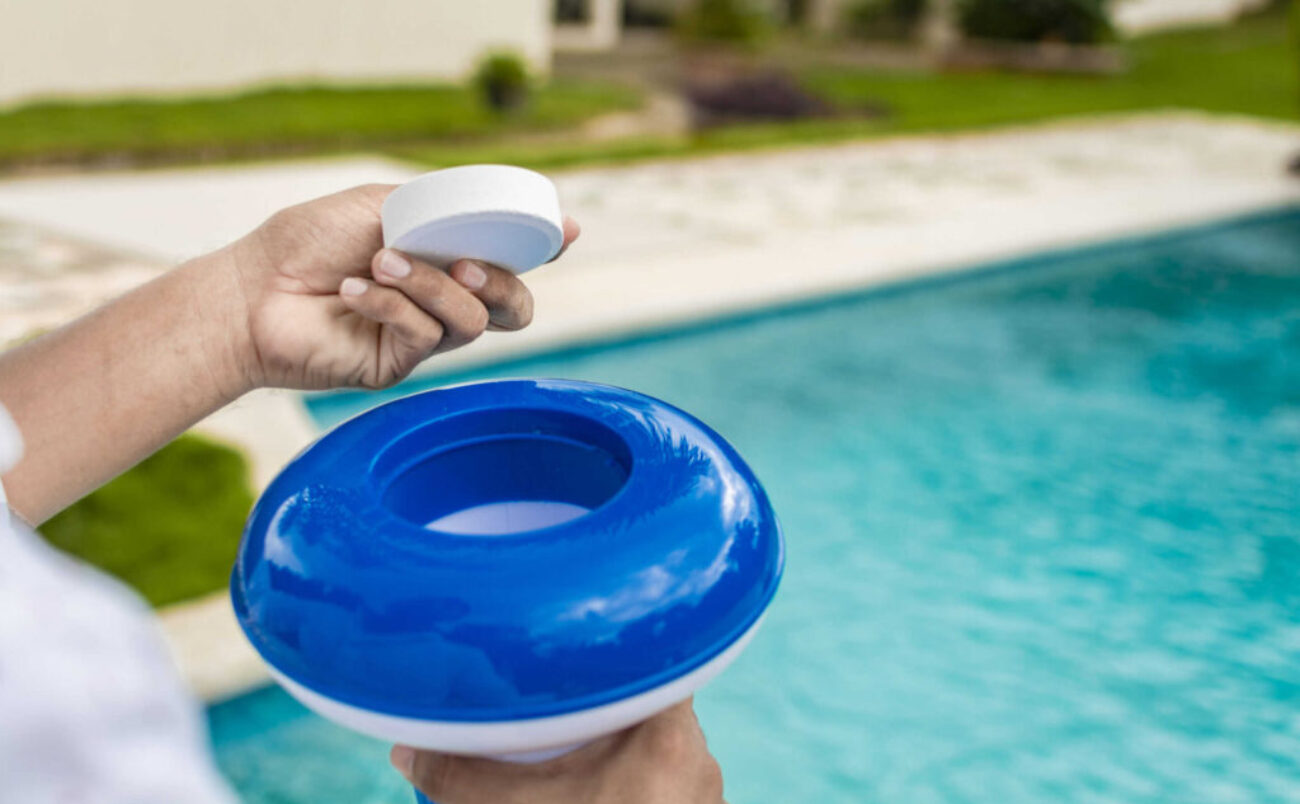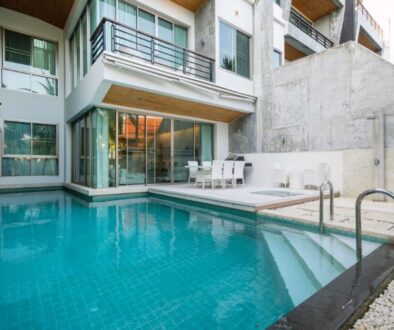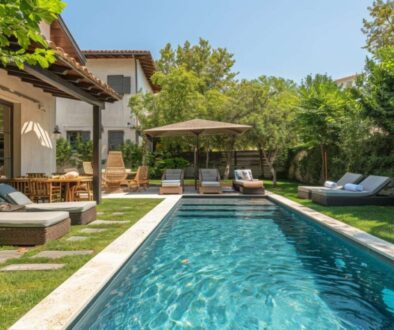Will Pool Water Ruin Grass? What Homeowners Should Know
As a homeowner in Jacksonville, FL, the joys of having a swimming pool can sometimes be marred by concerns about how the water affects your lawn. With the summer heat bearing down, the refreshing allure of a cool dip is irresistible. However, the question on many minds is: will pool water ruin grass? In this comprehensive article, we’ll explore the effects of pool water on your grass, the science behind it, and what you can do to maintain a lush lawn alongside your sparkling pool.
The Relationship Between Pool Water and Grass
Your lawn and pool are both essential parts of your outdoor living space, and understanding their relationship is crucial for maintaining both. The primary concern when it comes to pool water affecting grass is the chemical composition of the pool water. Typically, pool water contains chlorine, pH balancers, and other chemicals that can potentially harm your grass if not managed properly.
One of the most common chemicals in pool water is chlorine, which is used to keep the pool clean and free from harmful bacteria. While chlorine is effective in the water, its effects on grass can be detrimental if it seeps into your lawn in large quantities. High levels of chlorine can lead to browning of the grass, as it can disrupt the natural balance of nutrients in the soil.
To mitigate the risks associated with pool water, it’s essential to adopt a proactive approach to both your pool maintenance and lawn care. Regular maintenance is not just about keeping your pool clean; it also involves managing how your pool water interacts with your lawn. For more information on effective pool maintenance, check out our pool cleaning services.
Understanding the Effects of Pool Water on Grass
When pool water spills onto your lawn, or if you frequently drain and refill your pool, the excess chlorine and other chemicals can leach into the soil, impacting your grass negatively. This is particularly true if you have a concrete pool deck without proper drainage. In sandy soils, like those found in Jacksonville, the potential for chlorine and pool chemicals to affect the grass is heightened, as these substances can be absorbed without adequate filtration.
The pH levels of pool water can also create issues for grass. A typical pool pH level of 7.4 to 7.6 is ideal for swimming, but grass prefers a pH range of 6.0 to 7.0. Regularly monitoring and adjusting your pool’s pH can help minimize the risk of harming your lawn. For homeowners, understanding the balance of chemicals in both your pool and lawn can be a challenging task. To ensure your pool is always at optimal levels, consider contacting Pool Service Jacksonville for expert assistance.
How to Protect Your Grass from Pool Water Damage
There are several strategies you can implement to protect your grass from the adverse effects of pool water. Here are some practices that can help maintain your lawn’s health while enjoying your pool:
1. Proper Pool Design and Installation
When installing a pool, consider incorporating features that direct water away from your lawn. A well-designed drainage system can prevent excess water and chemicals from pooling on the grass. Adding landscaping features, such as decorative rocks or plants, can also help absorb any excess water before it interacts with your lawn.
2. Regular Pool Maintenance
Ensuring your pool is well-maintained can greatly reduce the chances of chemical runoff affecting your grass. Regularly test and balance your pool’s chemicals to keep them at safe levels. Our team at Pool Service Jacksonville offers comprehensive pool maintenance services that include chemical testing and balancing, ensuring your pool is safe for swimming and won’t harm your lawn.
3. Water Your Lawn
Watering your lawn adequately can help dilute any pool chemicals that may come into contact with the grass. If you notice pool water on your lawn, give it a good soak with fresh water to help wash away any harmful chemicals. This is especially important during the hottest months of summer when evaporation rates are high.
4. Create Barriers
Installing barriers such as hedges or flower beds can help deflect pool water away from your grass. These natural barriers not only protect your lawn but also enhance the aesthetics of your outdoor space. Additionally, if you have a concrete or stone pool deck, ensure that it is sloped away from your lawn to direct water runoff away from grassy areas.
5. Choose the Right Grass Type
Some grass types are more tolerant of chlorine and chemical exposure than others. Consider planting grass varieties that can withstand higher pH levels and the occasional chemical exposure. In Jacksonville, warm-season grasses such as Bermuda and Zoysia are popular due to their resilience in hot, humid climates.
When to Call Professionals
If you’re uncertain about the best practices for maintaining a healthy lawn alongside your pool, it might be time to seek professional help. Hiring a pool service can relieve the stress of managing pool maintenance and ensure the health of your grass. Pool Service Jacksonville specializes in providing tailored pool care solutions that also consider the impact on your surrounding lawn.
Our certified professionals are well-versed in the nuances of maintaining both pools and lawns. We offer a range of services, from scrubbing tiles to testing and balancing chemicals, which not only ensure a clean swimming environment but also help protect your grass from potential damage.
Frequently Asked Questions
Will chlorine kill my grass?
Excessive chlorine exposure can lead to browning of your grass as it disrupts the nutrient balance in the soil. Keeping chlorine levels balanced and avoiding direct runoff onto your lawn can help protect your grass.
How often should I water my lawn if I have a pool?
Regular watering is crucial, especially during the summer. Watering every 3-7 days is generally recommended, but adjust based on rainfall and heat. Always water after pool water spills to dilute any chemicals.
Is it safe to let my pets play on the grass after pool water has been on it?
While a small amount of pool water is unlikely to harm your pets, it’s best to rinse any pooled water off the grass and ensure that the chemical levels are safe before allowing them to play.
What should I do if my grass is turning brown?
If your grass is turning brown, check for signs of chlorine damage or other chemical imbalances in the soil. Water the area thoroughly and consider consulting a lawn care expert for further diagnosis.
Conclusion
In conclusion, while pool water can potentially harm your grass, proactive measures can help maintain a beautiful lawn and a sparkling pool. Understanding how to balance the needs of both spaces is essential for any Jacksonville homeowner. Regular pool maintenance is crucial for ensuring the health of your lawn, and that’s where Pool Service Jacksonville comes in. Our team of experts is dedicated to providing top-notch pool care, ensuring that your pool is clean and your lawn remains lush.
Don’t let pool maintenance overwhelm you! With our current offer of 50% off your first month, there’s never been a better time to contact us at 904-643-3710 and discover how we can help keep both your pool and lawn in perfect condition. Enjoy your summer with peace of mind, knowing that your outdoor oasis is in expert hands.



